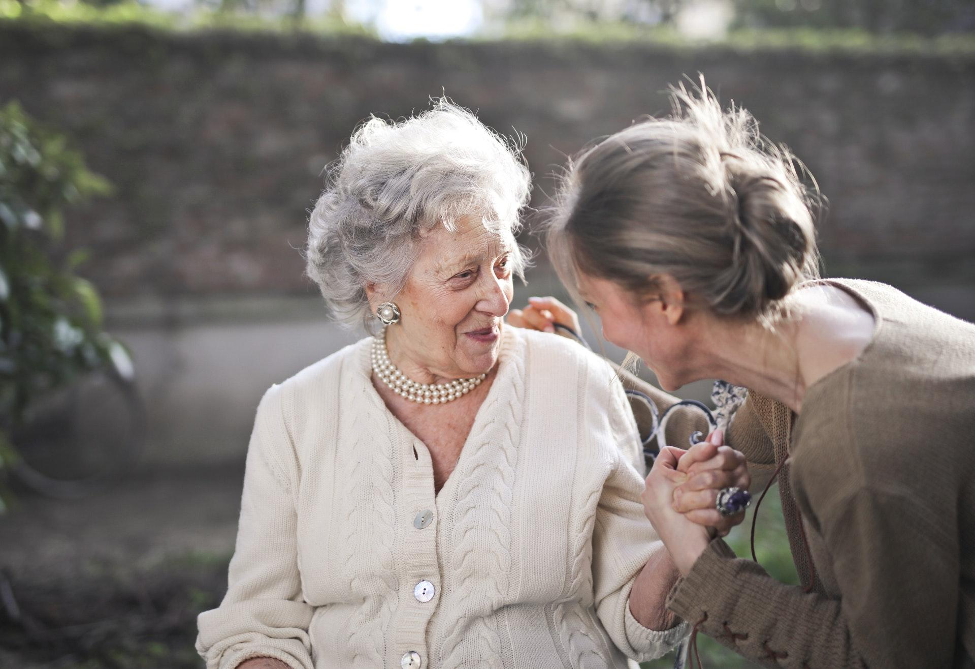Signs It’s Time to Consider Assisted Care for a Loved One
Signs It’s Time to Consider Assisted Care for a Loved One
Deciding to move a senior loved one into assisted living is one of the hardest things you will ever have to do. It’s easy to wonder whether or not you’re doing the right thing. But in most cases, a move into assisted living is beneficial for everyone, family caregivers included. To help you navigate this difficult decision, Universal Medical Data has put together this quick guide packed with valuable tips and resources.
Indicators to Watch For
As our loved ones grow older, it can be difficult to spot definitive signs that they need help. Many people are absent-minded, forgetful, or disorganized by nature, and some level of age-related change in behavior is normal. How do you know if what you’re seeing is cause for concern?
These are some of the most common signs that indicate your loved one is struggling with their daily living tasks and may benefit from assisted care.
- A recent accident or medical emergency.
- Slow recovery from illness or injury.
- Difficulty with daily living tasks like getting dressed or taking medication.
- Neglecting self-care and personal hygiene.
- An unusual decline in home maintenance and cleaning.
- A fridge that’s empty or filled with spoiled food.
- Piles of unopened mail and unpaid bills.
- Symptoms of loneliness and isolation.
Beyond these indicators, it’s also important to consider your own well-being. How are you managing to cope with your caregiving responsibilities? If your caregiving role is taking a toll on your mental and physical health, it’s time to call in some assistance.
Exploring Senior Living Options
Once you determine that assisted care is in everyone’s best interests, it’s time to research your senior care options. Modern Retirement explains that assisted living and independent living communities both make life easier for seniors, but they differ in some notable ways. Independent living communities enable seniors to live in their own unit while gaining access to amenities like laundry, housekeeping, and transportation. Assisted living facilities offer an additional level of care by helping with daily living activities such as dressing and medication management. Some other options to consider include adult daycare, skilled nursing, memory care, respite care, and home-based care.
Paying for Assisted Living
Paying for assisted living is a common obstacle for seniors and their loved ones. You may be able to save some money by helping your loved one age in place, making use of alternatives like adult daycare, home care, and medical alert devices to maintain their quality of life.
Make sure you evaluate all of your funding options if your loved one needs assisted living or nursing home care. The Balance recommends checking your loved one’s eligibility for Medicaid or the Veteran Aid & Attendance Pension, both of which offer financial help with assisted living costs. You could also talk to your loved one about selling their home to cover their care costs. While selling a home during the pandemic can feel a little intimidating, offering 3D walkthroughs and live video-chat tours is a great way to let buyers safely tour the home.
How to Support Your Loved One
Try to involve your loved one in this discussion as much as possible. They’ll have a much easier time with the transition if they have some say in where they’re going to live and the kind of care they will receive. Take the time to work through your feelings so you’re prepared to support your loved one through the challenging emotions that may come up during conversations about assisted living. Listen to their concerns, express empathy, and be respectful.
Last but not least, ensure you’ve collected all the necessary paperwork and forms you’ll need to act on your loved one’s behalf if you’re taking on that role. You can also sign up for Responder PHR (Personal Health Records) service that allows caregivers and first responders to access important health information in an emergency.
Making the transition to assisted living can be tough for seniors and family members alike. Take it step by step and realize that it can take time for your senior loved one to process the changes that are occurring. By starting the discussion early, you and your loved one will be better prepared to make an informed and well-researched decision.

